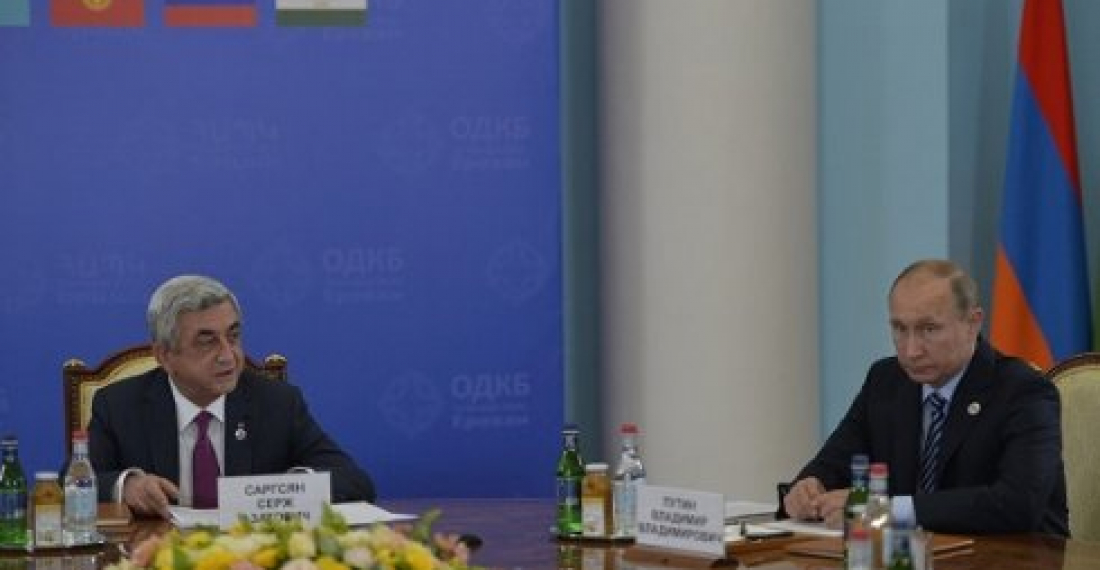Армения недовольна поддержкой со стороны своих союзников по ОДКБ в конфликте с Азербайджаном из-за Нагорного Карабаха.
В пятницу, в Ереване, лидеры России, Армении, Белоруссии, Казахстана, Кыргызстана и Таджикистана, в ходе заседания Организации Договора о коллективной безопасности (ОДКБ) приняли коллективную стратегию безопасности, в которой изложены приоритеты их военного союза в рамках ОДКБ до 2025 года, а также определенны все основные направления сотрудничества.
"Государства-члены вновь подтвердили свою решимость выстраивать отношения с членами мирового сообщества на основах равенства и неделимости безопасности, воздерживаться в международных отношениях от угрозы силой или ее применения, при этом в решении возникающих проблем отдавать приоритет политико-дипломатическим методам," сообщил президент Армении Серж Саргсян журналистам, подводя итоги саммита в Ереване.
В Армении были ожидания, что ОДКБ поддержит Армению в конфликте с Азербайджаном вокруг Нагорного Карабаха и займет по этому поводу позицию. Однако, организация заняла не обязывающую позицию.
"Партнеры по ОДКБ выразили поддержку договоренностям, достигнутым на организованных в текущем году в Вене и в Санкт-Петербурге саммитах по нагорно-карабахской проблеме, направленных на недопущение эскалации ситуации в зоне конфликта, стабилизацию обстановки и создание условий для продвижения мирного процесса," - сказал президент Серж Саргсян.
"На сессии подтверждена необходимость исключительно мирного решения нагорно-карабахской проблемы, выражена поддержка усилиям сопредседателей Минской группы ОБСЕ по урегулированию конфликта на основе норм и принципов международного права, положений Устава ООН, Хельсинкского Заключительного Акта, в частности, касающихся неприменения силы или угрозы применения силы, территориальной целостности государств, равноправия и права народа на самоопределение."
На полях саммита наблюдалось также редкое публичное несогласие между армянскими и российскими дипломатами. Министр иностранных дел России Сергей Лавров говорил с журналистами о возможной роли Турции в урегулировании карабахского конфликта, заявив, что Турция могла бы сыграть позитивную роль. Армянские дипломаты днем ранее заявили, что Турция должна остаться в стороне от процесса урегулирования карабахского конфликта как можно подальше.
На встрече в Ереване также было принято решение отложить обсуждение вопроса о выборе нового Генерального секретаря организации. Ходили слухи о том, что были рассмотрены несколько армянских кандидатур, но в результате совещаний пришли к том, что решение по этому вопросу будет принято в Санкт-Петербурге до конца года.
источник: commonspace.eu по материалам Общественного радио Армении и агентств
фото: Президент Саргсян Армении и президент России Владимир Путин на саммите ОДКБ в Ереване, 14 октября 2016 года (фото любезно предоставлено Общественным радио Армении)






